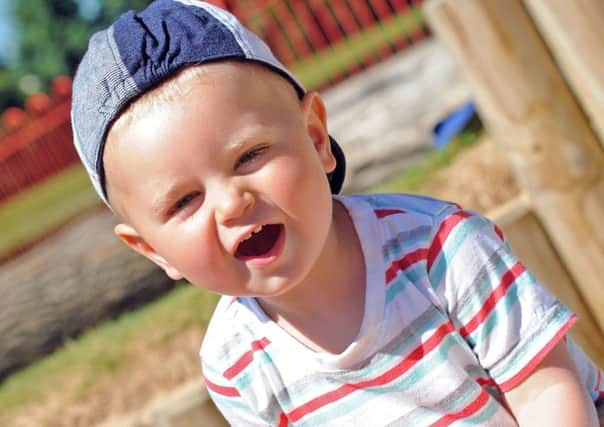Warnings as heatwave hits


The Met Office has issued a level 2 alert which is the official warning that high temperatures over several days can pose a significant risk to health for elderly people and children.
Every year, accident and emergency departments and GP surgeries see rises in urgent attendances by people who have been affected by the hot weather - particularly children, older people and those with heart conditions and respiratory problems. Health commissioners are urging people to take all precautions possible to avoid ending up in A&E or at their GPs.
Advertisement
Hide AdAdvertisement
Hide AdThe CCG is reminding people how best to stay well in the hot weather, how to treat common ailments such as allergies, stings and bites and how to stay safe in the sun – and avoid an unnecessary visit to the hospital or surgery.
Dr Judy Underwood, clinical chair for NHS Mansfield and Ashfield Clinical Commissioning Group said: “Children, especially those under 2 years of age, older people and people with kidney problems, diabetes, circulation, heart and lung conditions are especially vulnerable during periods of prolonged high temperatures. Keeping cool and drinking plenty of fluids are essential to avoid becoming unwell.
“People can still enjoy the warm and sunny weather by taking sensible precautions; wearing a hat in the sun, keeping well hydrated, avoiding being outdoors at the hottest part of the day, using high-
factor sun creams and making sure they have prescribed medication to hand.
Advertisement
Hide AdAdvertisement
Hide Ad“Drinking alcohol in hot weather can also lead to dehydration and can lead to major complications such as heat exhaustion or heat stroke, particularly for those with kidney problems, diabetes, circulatory or heart conditions.
NHS Choices and NHS 111 are available 24 hours a day, and they can also advise people about the best medical advice for people’s problems in the hot weather. You can also visit www.nhs.uk
and insect
repellents. Most minor problems can be treated at home using creams and pain relief available from
pharmacists and over the counter, which will help to improve irritating symptoms.
Advertisement
Hide AdAdvertisement
Hide Ad“In some cases, stings can be painful and trigger an allergic reaction. Lots of swelling and blistering
or redness and pus, might indicate an infection or allergic reaction. For people who are aware they
react in this way to stings and bites, having antihistamines to hand at home or in the handbag or car,
ready to take if needed; will help. In very rare circumstances, some people develop a severe allergic
Advertisement
Hide AdAdvertisement
Hide Adreaction, not only may there be a lot of swelling and blistering at the site of the sting and elsewhere
on their body but they may also become very breathless, get swelling of their tongue or mouth, feel
very faint and sick and become very unwell. These people should seek immediate medical attention.
“People are also being reminded about the dangers of severe dehydration, heat exhaustion or heat
Advertisement
Hide AdAdvertisement
Hide Adstroke. The early signs are becoming tired, sweaty, feeling sick and faint, and feeling generally
unwell. More severely, people can become confused, have dry skin, be very thirsty and have rapid
shallow breathing. This can happen when temperatures climb, even when people are indoors or in a
car, where temperatures can get very high.” NHS Choices and NHS 111 are available 24 hours a day,
Advertisement
Hide AdAdvertisement
Hide Adseven days a week and they can also advise people about the best medical advice for people’s
problems in the hot weather.
For more information about staying well in the hot weather and treating bites and stings visit
www.nhs.uk